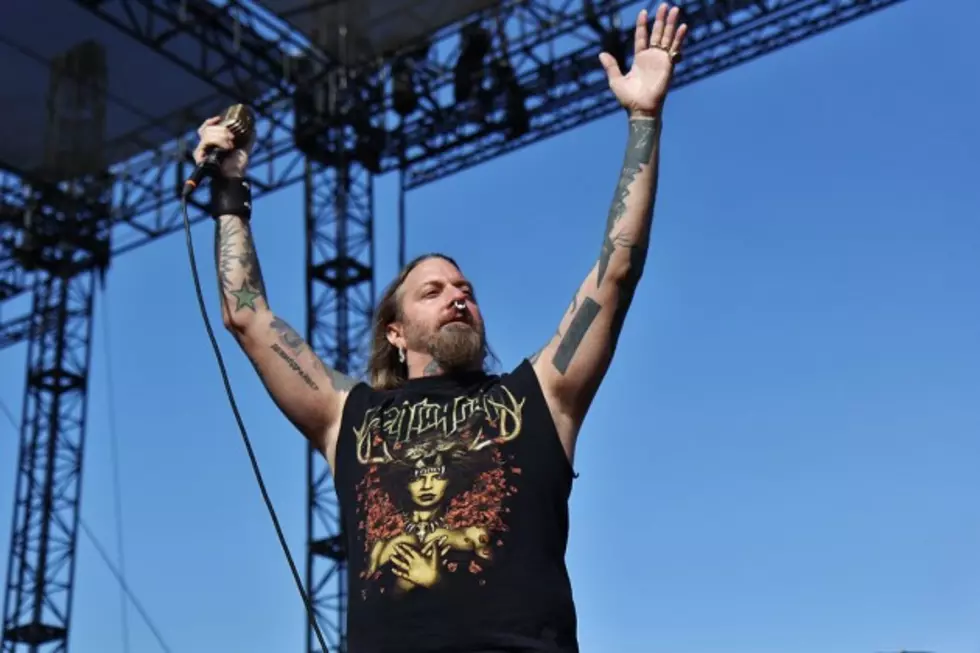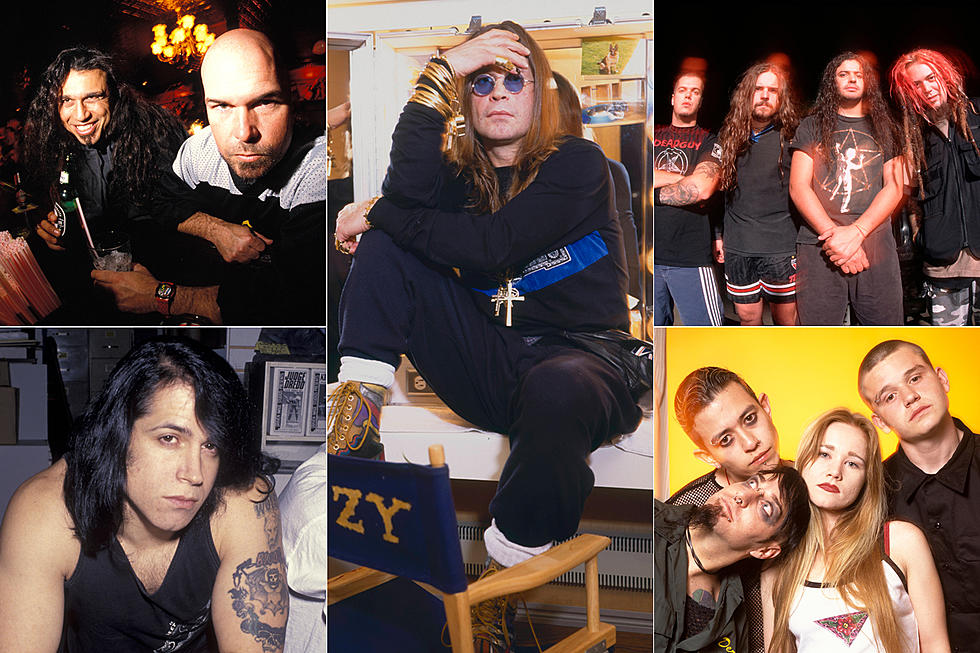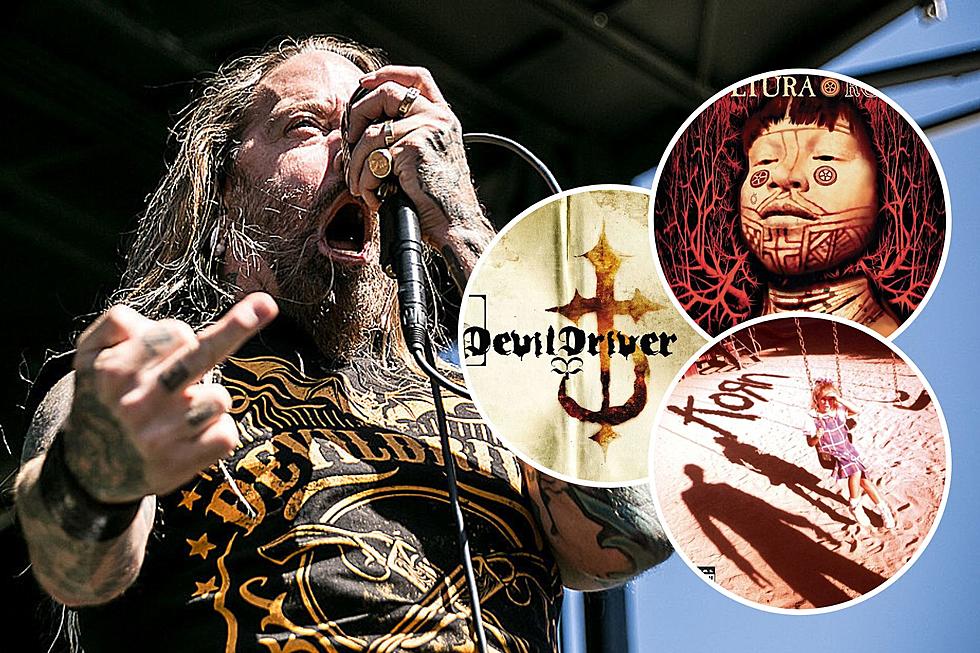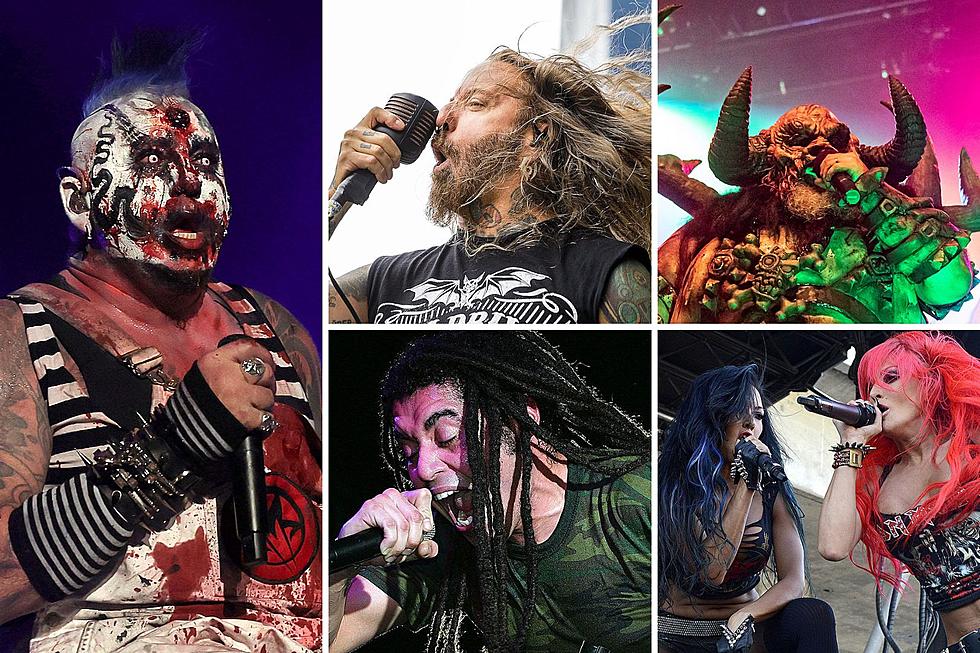
Dez Fafara Delves Deep Into New Coal Chamber Album ‘Rivals’
Rivals marks Coal Chamber’s first album in 13 years. We had the chance to speak with vocalist Dez Fafara about the album and creating this new music with his Coal Chamber bandmates. He talks about getting the demos early on and says, “This is very far from what our early ‘90s records were. It sounds new, fresh and almost like another new scene coming out of what's going on, with what we’re doing musically.”
Fafara also goes in depth on certain songs and talks about working with his friend and legendary musician Al Jourgensen of Ministry. Fafara says this about creating and working on the new disc Rivals: “This was like magic, it has a life of it’s own.” Check out our full interview with Dez Fafara of Coal Chamber below:
The title Rivals – what does this title mean to you personally?
You can take it a few different ways – the reason that rivals is scratched out on the cover of the album, it’s basically getting away from your rivals and sometimes the rival is within yourself. Sometimes you have to confront things within yourself and have no fear and move through life. Sometimes you have to confront somebody or something in or around your life and say, “No more, this is it” and that’s why the title is scratched out. Life is too short to not confront your rivals, even with yourself or someone else, it’s things we all deal with and have to get a handle on.
Working with Ministry’s Al Jourgensen, how was that experience for you?
He’s been a longtime friend and I hit him up and said, “I got this song and it’s called ‘Suffer in Silence’ and this is what it’s about. Do you think you’d want to come down? You’re one of the only guys I’d ever think of having on the record." He goes “Yeah I’m going to come down.” It worked out perfectly, he came down, we barbequed, we had a great time.
What was interesting is to sit down and get Al’s signature sound on the mic – that was incredible. To be in my own house, in my home studio, it’s black and orange everywhere and there’s Al sitting there. I hear him all of a sudden through the mic and headphones, it was awesome.
Where did you draw lyrical inspiration from on this new album?
I was in a place in my life where I needed to write lyrics at that point and sometimes a lyricist will tell you it’s very cathartic. I started getting the demos and I wanted to write the vocals as one whole thing not just one song at a time. Once I got the material I started writing daily and the inspiration was drawn from everywhere. It was drawn from the past, it was drawn from things currently going on in my life, it was drawn from me thinking about the future and how things in my life will be different if I do things a certain way and just the variations on life in general.
There were times during this record that were incredible, I like to write really early in the morning – get up at 4:30 in the morning when it’s still dark and go downstairs in my studio and write. There was one day when my wife came down at 2 a.m. and she’s like “You’ve been in here all day,” and I go, “Listen to this, I wrote six songs.” I sang them to her and it was “I.O.U. Nothing,” “Bad Blood Between Us,” “Suffer in Silence” and other songs on the record.
What was great about doing this record is that we weren’t pushed for time. We only had to write or we only had to compose and we only had to create when the feeling was right. You can feel the organic-ness of it when you listen to it. It’s got a lot push and pull, it feels in your face - everything had to be sung, you couldn’t cut and paste the chorus. Everything was done either in the first or second take or shut down for the day, meaning vocally it was walking in and knowing the song and not looking at pieces of paper. It was going in and hitting the song as hard as you can with as much feel as you can.
Throughout this album there’s a reccurring atmospheric and earthy lyrical presence. How important are the topics of the elements, nature and the atmosphere around you when writing?
This is of utmost importance - I tend to write early in the morning 4:30 to 5 a.m or late night, the topics occur naturally at those hours. I listen to a song once through then begin to allow it to "talk to me" to tell me what's needed lyrically.
“Orion” is lyrically and musically haunting, moving and very different from any other song on the record. Talk about that track.
The stars of Orion were associated with Osiris, the god of rebirth and afterlife, by Egyptians. Every time I was in the booth recording not only was the constellation overhead but also in star form, it is on the ceiling of my studio.
One of my favorite lines on the entire album is from “The Bridges You Burn.” The lyrics, “Watching you walk / May the bridges you burn / Light your way / Into oblivion.” Talk about your headspace when you were writing the song.
I was in the headspace of saying goodbye to someone who had wronged me for years even though I showed friendship, great kindness and a helping hand in life. This is the instance of "Leave now and don't come back." Don't call, don't expect anything more from me in this life and the karma you shall receive down the line for your deeds will all be laid bare before you over time!
It’s been well over a decade since the last record, how was it to work with your Coal Chamber bandmates and get into that mindset again?
The band was at the top of their form. Getting to write to this music was absolutely breathtaking for me as a lyricist – it was every palette I could possibly use, I could go high I could go low, I could go heavy I could go clean. I could do anything over the track vocally and lyrically and it was tremendous for me to write like that. I feel honored to lay vocals over this music.
The first couple of day of pre-production, I laughed so hard my face hurt in the morning. The music itself was moving way forward, when I heard stuff I had to ask them, “What are you writing?”
That’s what happened, when I was on the bus coming back from Soundwave with Meegs [Miguel Rascon]. He was listening to stuff on his headphones and I grabbed it from him and was like, “What is this?.” He goes, "It’s these three songs I wrote a couple weeks ago,” and I’m like, “For what? For who?” and he’s like, “I’m just writing.” The stuff sounded insane and one of them was “I.O.U. Nothing” and I think one of them was parts of “Suffer in Silence” and I told him I wanted to lay vocals on this. I didn’t know at the time if this was even Coal Chamber. I didn’t know what it was going to be but it’s us and they did a great job.
What does the rest of 2015 have in store for you?
We go to South America and then Europe. After Europe we’re talking about doing something in the United States but we’ve got to put some work into that and figure that out. I’m taking from September to December off to work on the next DevilDriver record.
Our thanks to Dez Fafara for taking the time to speak with us. Pick up Coal Chamber's Rivals at iTunes now.
Dez Fafara Talks About His Early Influences:
More From Loudwire









